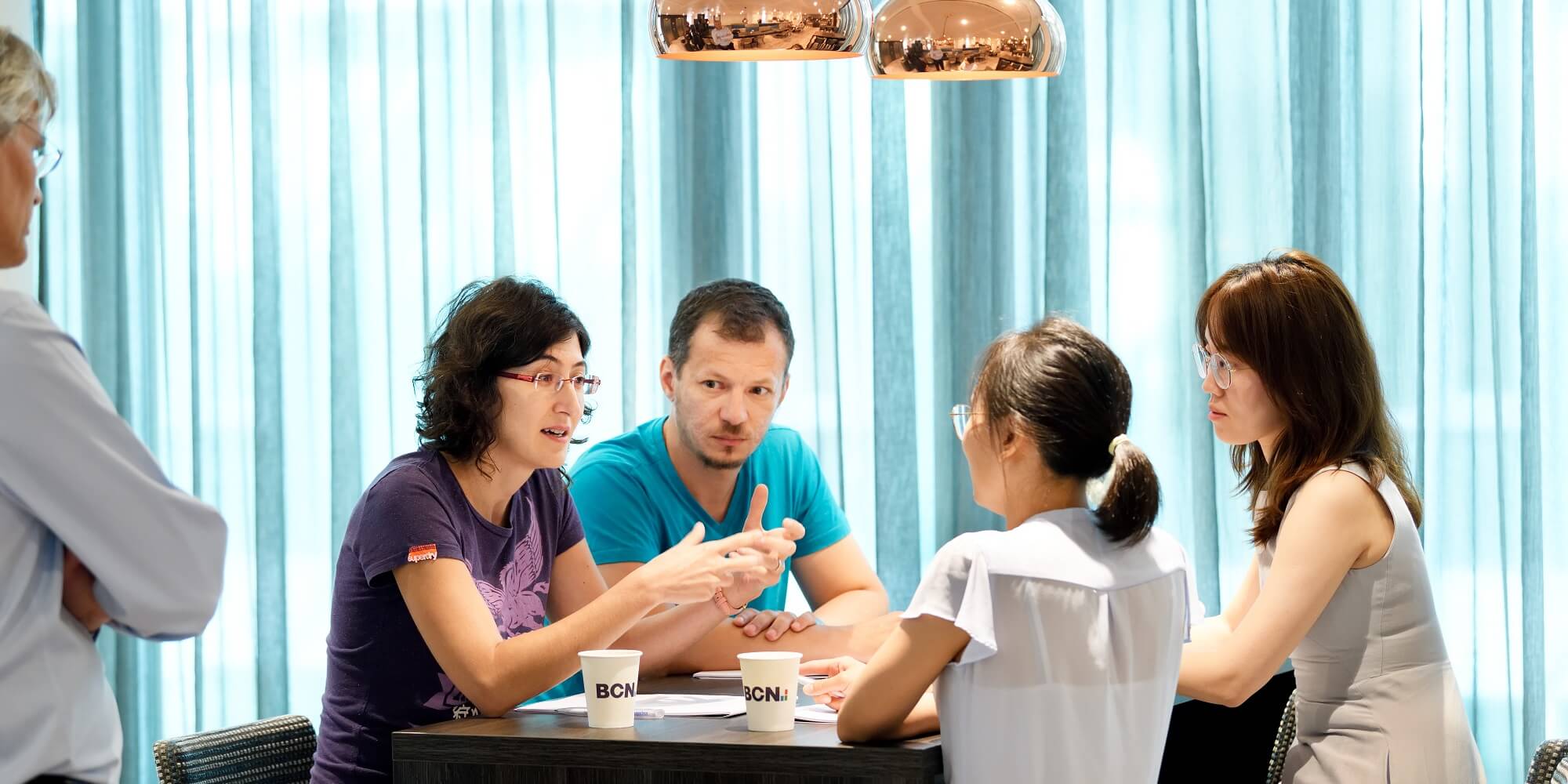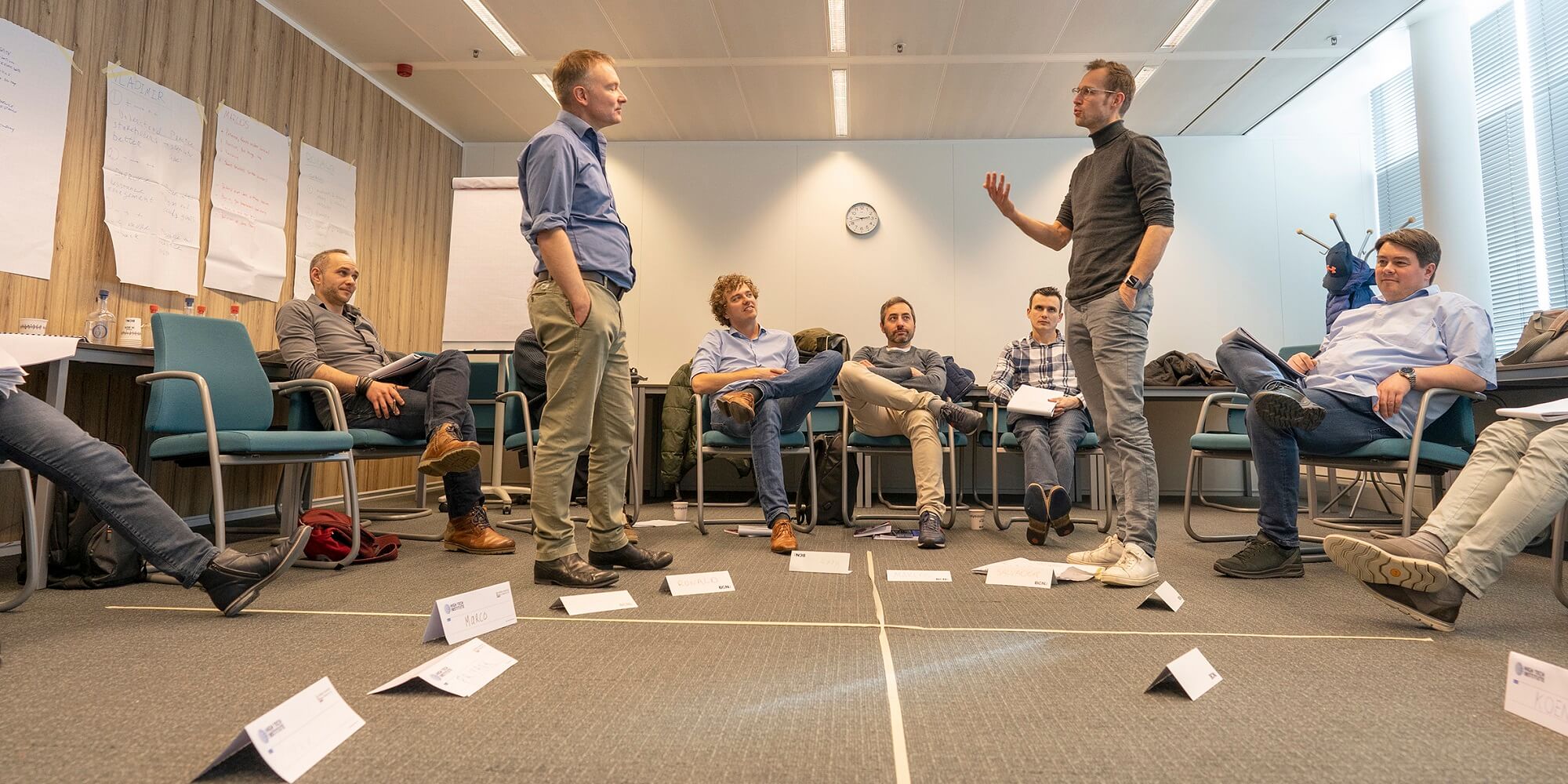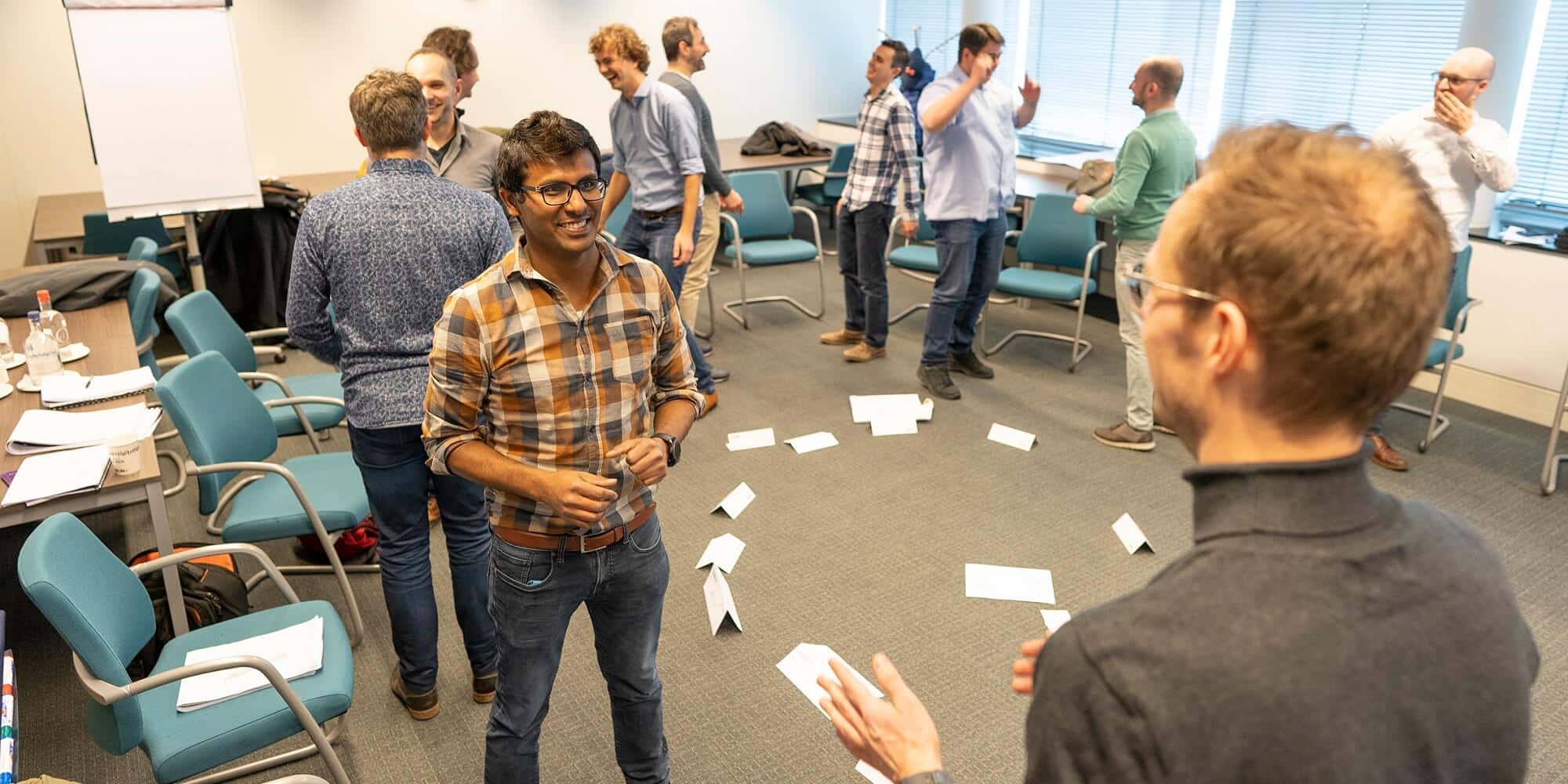Every half day starts with a short theoretical introduction on the topics mentioned, after which the teams starts working on the assignment, based on their project. Every half day finishes with a feedback and discussion moment. The outcome of this approach is one or two viable meaningful solution routes for the problem at hand, translated in a business model structure.
In order to harness the reality of today, in order to create the future, rather than be subjected to it, innovators need to understand what innovation means in an ever changing, uncertain world, disrupted by exponential technologies. They need to know how to construct business models that matter, using technologies for positive impact. Additional to their technological specialization, engineers need to develop an understanding of, and a competence in turning the great potential of (exponential) technologies into business models to bring to market.
This training is available for in-company sessions.
Objective
The outcome of the training course, is to develop the mindset with which innovators can comfortably explore, understand and act in a hyper-complex world, disrupted by exponential technologies, while becoming the entrepreneur and creator of sustainable, scalable solutions. This transformation of people, eventually, will be the engine for corporate and societal transformation. ‘Business model innovation in an exponential world’ gives the insight needed and allows to experience it first-hand.
Target audience
The training, and its focus on innovation acceleration, makes it relevant for all specializations of engineering (or otherwise technology trained professionals) having an interest to make more effective use of the available technology. It contributes to the understanding of how to create impactful, scalable and economically viable solutions based on the potential of exponential technologies, supporting participants to become leaders in their respective fields.
You can participate individually, although it is more effective when more people of the project team join at the same time.
In collaboration with:
Program
The program consists of six seminars with assignments and an ongoing personal transformation journey through the entire period.
Day 1 - morning: Theoretical scope on the context
- A complex world, disrupted by exponential technologies and societal exponentialities
- Agility and exponential organizations
Assignment 1
Starting from the current project understanding, create an item-tree of all the issues that play, and order them in different levels of importance (teamwork).
Day 1 - afternoon: Insights in some tools
- Focus on the problem area (rather than on the solution), based on design thinking for wicked problems (Roger Martin) and systems thinking tools
Assignment 2
Make an empathy map (in group), for a particular user group (relevant for your project). From the empathy map, enrich the item-tree.
Day 2 - morning: The potential of collective intelligence
- Lessons from artificial life for dealing with collective intelligence
- Values as a driver for wicked problem innovation
Assignment 3
Connect the items of the item tree, creating feed-back loops and eventually a causal loop diagram.
Day 2 - afternoon: Organizing self-organization
- Living Labs, Transformational journeys, Studios, Learning communities
Assignment 4
‘Frame’ the ‘problématique’ based on the causal loop diagram. Define at least two new/different viable scenarios for your project.
Day 3 - morning: Biomimicry based ideation: are we sustainable, circular and in tune with nature
- Biomimicry based design
- Biomimicry approach
Assignment 5
Ideate your scenarios, based on the biomimicry principles. Adapt, if necessary, your scenarios.
Day 3 - afternoon: Business Model Innovation
- The business model canvas
- How to use it
Assignment 6
Complete a Business Model Canvas for your scenarios.
Day 4: The leader as influencer of flexible & diverse teams and stakeholders
- Convincing stakeholders
- Transforming resistance into buy-inn
- Driving for solutions
Methods
Certification
Participants will receive a High Tech Institute course certificate for attending this training.

Remarks from participants





